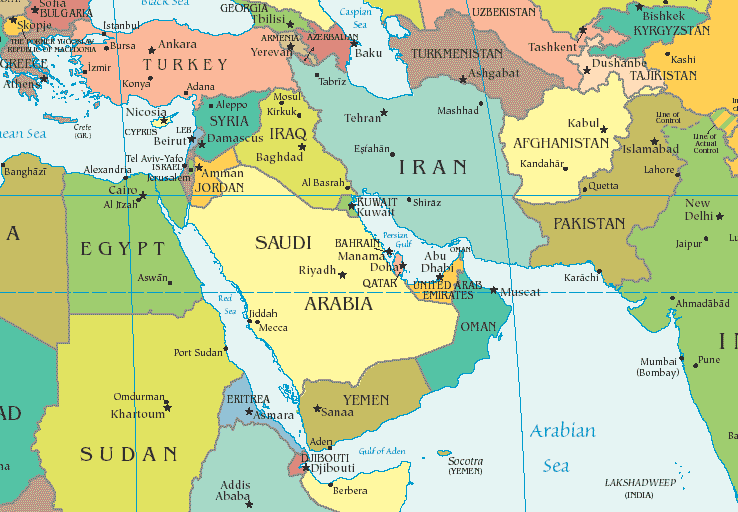Rami Dabbas – The Middle East is Fundamentally Changed
Fundamental changes are taking place in the Middle East that will ultimately redraw the diplomatic map of the region, including the vital Persian Gulf.
The concept of an “Arab-Israeli conflict,” which began to take root in the Soviet press during the middle of the last century, gradually morphed in more recent years into the more specific “Palestinian-Israeli conflict.” And now that the rest of the Arab world is more open to the present of a Jewish state, even that conflict is waning. Israel is slowly but surely emerging from regional isolation and becoming more engaged with its Arab neighbors, fully participating in the ongoing political and economic processes in the Middle East.
Aryeh Lightstone, the former Israeli ambassador to Ukraine and a senior advisor to US Ambassador David Friedman, declared at the historic opening of the Israeli-Emirati Business Forum last month that this was “the reunification of the children of Abraham.” In an interview with the Azerbaijani newspaper the Azeri Daily, Israeli political scientist Zvi Magen suggested that after the UAE and Bahrain, Oman would be the next country to sign a peace accord with Israel, adding that “there are also real hopes for Saudi Arabia.”
Omani TV has already broadcast an official statement in which the state authorities expressed their support for the agreement between Bahrain and Israel, which is “important for the entire Arab Gulf.” Magen noted that in 2018, Israel Prime Minister Benjamin Netanyahu visited Oman, where he held talks with the country’s leadership. “Oman, in various regional forums, has repeatedly called for the integration of Israel into the Middle East region,” the expert said.
The attitude of the Arab world toward Israel is clearly changing, and the transition from confrontation to integration has begun. Meanwhile, Israel is working to restore relations with African countries, especially with Chad, after a 46-year break. Economic cooperation is taking place with other countries that previously refused any contact with Israel thanks to what is happening in the Middle East.
There are three main factors behind this dramatic shift:
- For many years there has been no military confrontation between Israel and any Arab state, and there has been almost no enmity between Israel and the Gulf states. In the past, the Gulf states demonstrated solidarity with the Palestinians. But as it became clear that the Palestinians themselves were not ready for peace, the Gulf states began to give priority to their own national interests.
- The Gulf states today face a real threat from Iran and need strong partners. Who would reject friendship with a regional power like Israel, which has a strong economy, strong army, and the latest technology? The leadership of the Arab countries realizes that cooperation with Israel opens up excellent economic prospects and access to world-class technologies.
- There is the important role being played by the United States with its “Deal of the Century.” This initiative goes well beyond resolving the conflict between Israelis and Palestinians, and proposes a new political map for the entire region.
Israel has maintained warm, but clandestine relations with the Arab countries with which it is now signing agreements. And that went on for many years. But we are entering a new phase in which the United States is exercising its influence over the region to bring those relationships out into the open in order to facilitate more normalization and accelerate the peace process.
The two countries most opposed to peace between Arabs and Jews are notably not Arab. Iran and Turkey see the Middle East as theirs, the place in which they consolidate their power. Given the history between these two countries and the Arab world, states like Egypt, the UAE and Saudi Arabia see Iran and Turkey as threats, if not outright enemies. They know that they must unite to face these threats, and that Israel is a critical addition to their alliance.
While the reasons might be entirely pragmatic, and not based on the shared values and religious ties that bind Israel and its American friends, the stage is nevertheless set for the Jewish state to emerge as a major player in the Middle East.
https://www.israeltoday.co.il/










